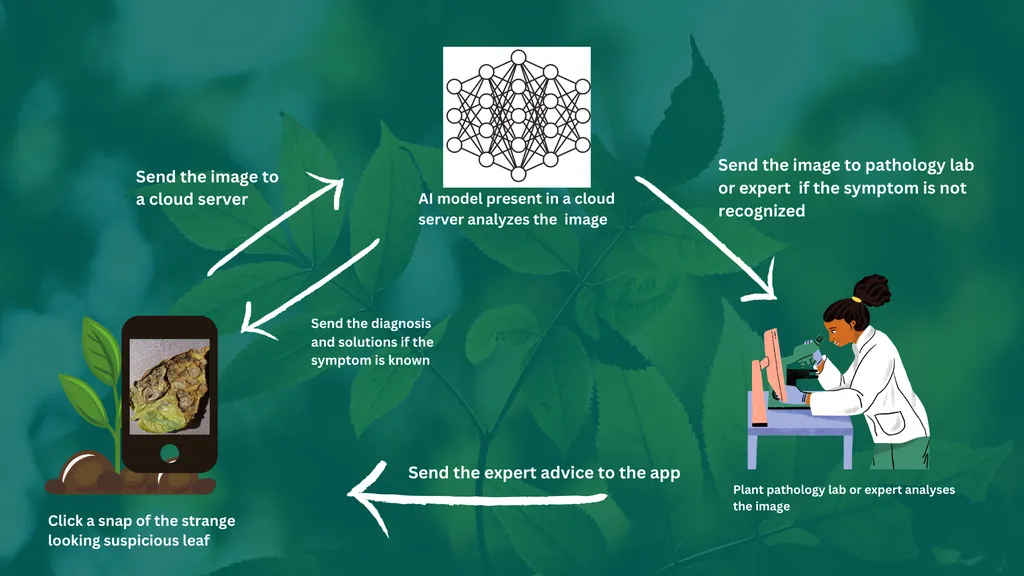In the heart of Andhra Pradesh, India, a groundbreaking innovation is taking root, promising to revolutionize the way we approach plant pathology and, by extension, the agricultural sector. Gulivindala Suresh, a researcher from the Department of Electronics and Communication Engineering at Aditya University in Surampalem, has developed AgroDetect Smart Plant Pathology, a web-based application that harnesses the power of image processing and deep learning to diagnose plant diseases with remarkable accuracy.
AgroDetect is not just another agricultural tool; it’s a game-changer. By analyzing images of plant leaves, the system can identify diseases with an impressive average accuracy of 97%. This is achieved through the use of a Convolutional Neural Network (CNN) model, augmented with Rectified Linear Unit (ReLU) activation functions. “The model’s accuracy is a testament to the potential of deep learning in agriculture,” Suresh explains. “It’s not just about identifying diseases; it’s about doing so quickly and accurately, which can significantly enhance crop yield and reduce losses.”
The implications for the agricultural sector are profound. Early and accurate disease detection can lead to timely intervention, minimizing crop damage and maximizing yield. This is particularly crucial in an era where climate change and other factors are making farming more challenging. “AgroDetect can be a powerful tool in the hands of farmers, agronomists, and agricultural businesses,” Suresh says. “It can help them make informed decisions, optimize resource use, and ultimately, increase profitability.”
The web application, designed using the Streamlit Python library, is user-friendly and requires minimal effort to interact with. This ease of use is a significant advantage, as it means that even those with limited technical knowledge can benefit from the technology. The system’s accuracy was evaluated using four categories of plant leaves from the PlantVillage database, and the results were compared with state-of-the-art works, further validating the system’s effectiveness.
The research was recently published in ‘Engineering Reports’ (translated to English as ‘Engineering Reports’), a testament to its scientific rigor and potential impact. The study not only showcases the power of deep learning in agriculture but also paves the way for future developments in the field. As we look to the future, the integration of such technologies into mainstream agricultural practices could very well be the key to sustainable and profitable farming.
In the words of Suresh, “This is just the beginning. The potential of deep learning in agriculture is vast, and AgroDetect is a step towards unlocking that potential.” As we stand on the brink of a new agricultural revolution, one thing is clear: the future of farming is smart, and it’s powered by technology.

